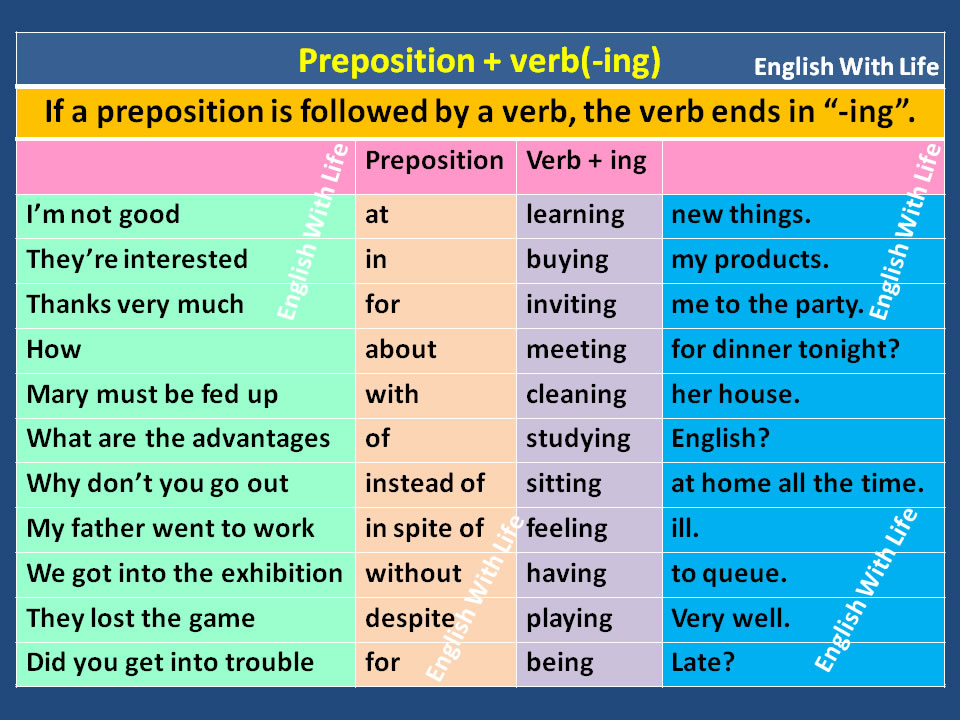
Preposition + Verb (ing) Vocabulary Home
Verbs followed by '-ing' or by 'to' + infinitive 2: Grammar test 1. Read the explanation to learn more. Grammar explanation. Some verbs have a different meaning depending on whether they are followed by an -ing form or to + infinitive. stop. Stop + -ing means the action is not happening any more.

List of Verbs 1000+ Common Verbs List with Examples • 7ESL English
- ing forms as nouns - ing nouns are nearly always uncount nouns. They can be used: as the subject of a verb: Learning English is not easy. as the object of a verb: We enjoy learning English. Common verbs followed by an - ing object are: as the object of a preposition : Some people are not interested in learning English. -ing form as a noun
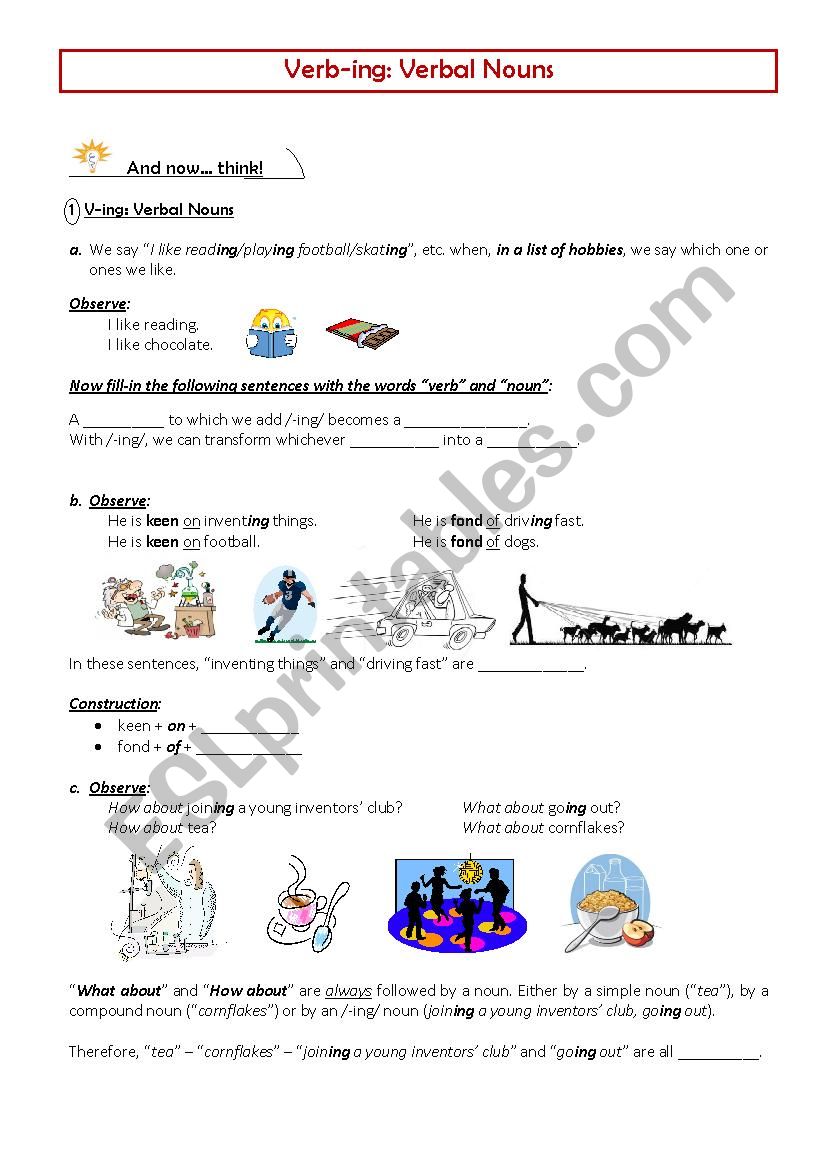
Verb Ing As Noun Modifier Examples / Noun Phrases Nouns and pronouns
1 No; "melting" is a verb. "Global warming" is a noun phrase in which "global" modifies the noun "warming". - BillJ Apr 20, 2020 at 11:47 Add a comment

Verbs + ing worksheet general gramma… English ESL worksheets pdf & doc
For + -ing - English Grammar Today - a reference to written and spoken English grammar and usage - Cambridge Dictionary
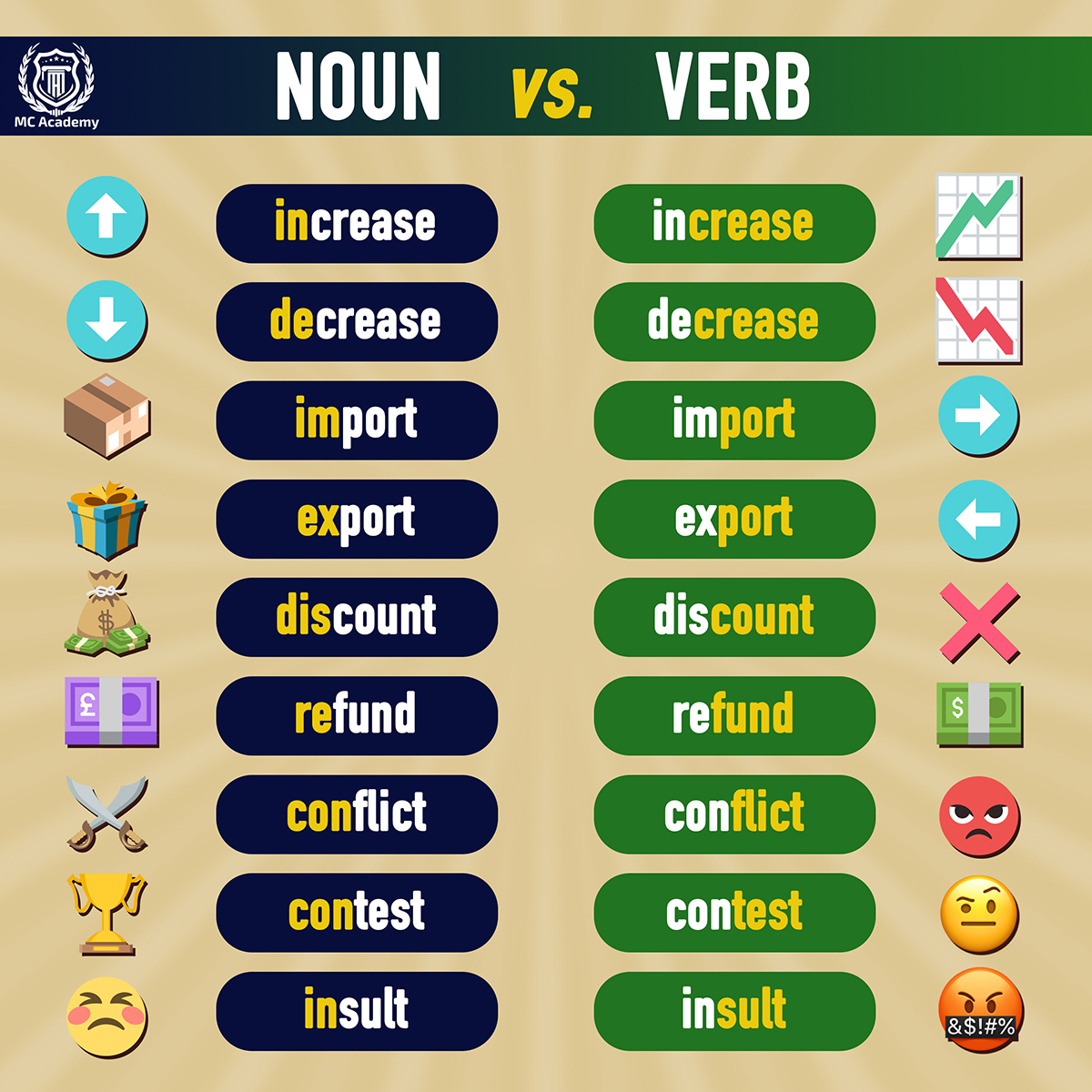
Noun vs. Verb 2
Verbing is a time-honored way of coining new words out of old ones, the etymological process of conversion (or functional shifting ). Sometimes it's also a kind of wordplay ( anthimeria ), as in Shakespeare's King Richard the Second when the Duke of York says, "Grace me no grace, and uncle me no uncles." Does Verbing Weird Language?

Grammar ing form or infinitive Part I презентация онлайн
Here are six common uses of the "-ing" form: 1. The "-ing" form is used in progressive verb tenses with auxiliary verbs (helping verbs). These are in active voice. Here are some examples: I am doing my homework.; I have been writing all day.; I was writing when the pizza arrived.; 2. The "-ing" form can function as a noun.These nouns are called gerunds and can be the subject of a clause.

English Grammar Lesson ing verbs used as nouns YouTube
English Grammar Verbs Clause structure and verb patterns Verbs followed by the '-ing' form Verbs followed by the '-ing' form Level: beginner Common verbs followed by the -ing form are: verbs of liking and disliking: detest dislike enjoy fancy hate like love I love swimming but I hate jogging. They always enjoyed visiting their friends.
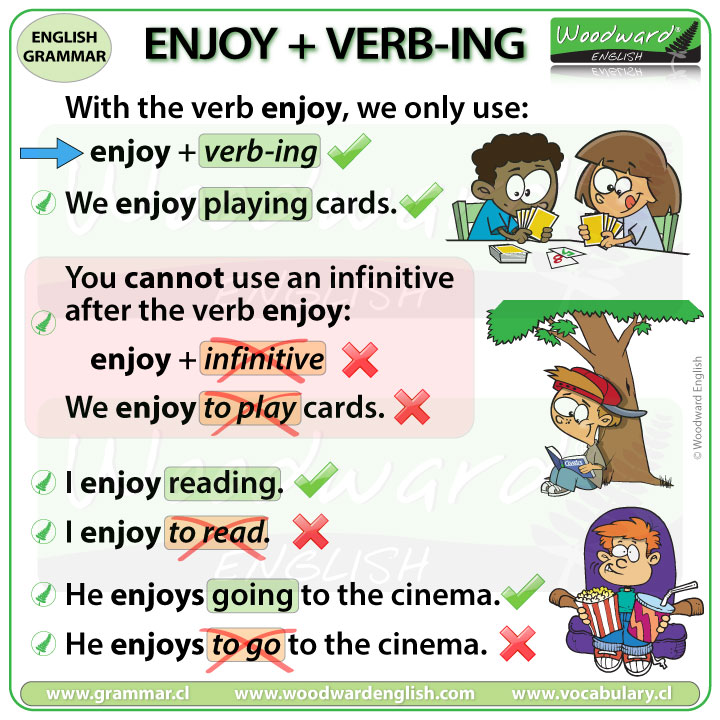
Like + VerbING Like + Infinitive Enjoy + VerbING Woodward English
The 'verb -ing' is a verb form that ends in '-ing'. It is used in different grammatical structures to serve various functions, from being the main verb of a sentence to acting as a noun or an adjective. It is often used to indicate ongoing action or state of being. Example: Running is my favourite activity. (Running is used as a noun)

220+ Useful Noun Noun Collocations from AZ • 7ESL Learn english
1. As a Subject 2. As an Object 3. After Prepositions 4. Gerunds as Complements 5. Compound gerunds: Common Mistakes with Gerunds Conclusion Understanding the Gerund A gerund is a verb that ends in '-ing' and is used as a noun. Essentially, it's a verb functioning as a noun.
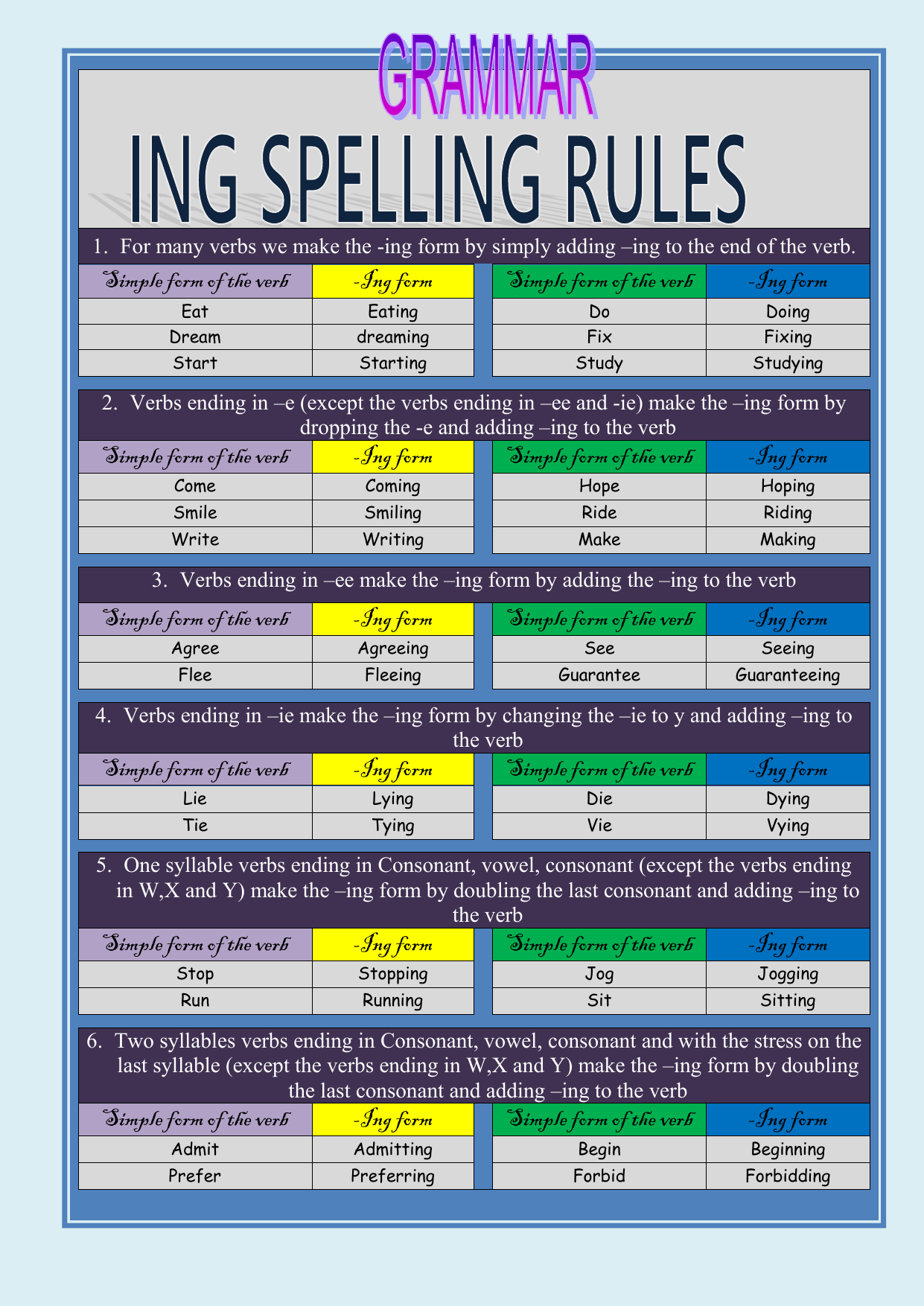
The Verbs Ing Gambaran
In English grammar, " -ing form" is a contemporary linguistic term for the present participle and gerund: any verb form that ends in -ing . In the book International English Usage (2005), Hancock and Todd note that the term " -ing form" is "neutral as to the function of a verb-derived -ing form." Examples and Observations

Like + VerbING Like + Infinitive Enjoy + VerbING Woodward English
Grammar The "ing" form: as a noun, verb, adjective, subject, object, adverb, or clause People learning English find the various ways that words end with "ing" to be tricky. In certain sentences the distinction can be arbitrary. This entry has two parts: summary examples followed by external references to detailed information.

Pin on Difference Between Participle and Gerund
The -ing form of a word can be used like a noun, a verb or an adjective. The noun form of -ing. When the -ing form is used as a noun, it modifies (or gives context to) a verb. Nohelia loves dancing. (used as an object; verb + -ing form) [Note: If the sentence says "Nohelia loves dancing", then it is talking about dance as a concept, not as an.

English Grammar The ing form of verbs English grammar, Spelling
Verb patterns: verb + infinitive or verb + - ing ? - English Grammar Today - a reference to written and spoken English grammar and usage - Cambridge Dictionary
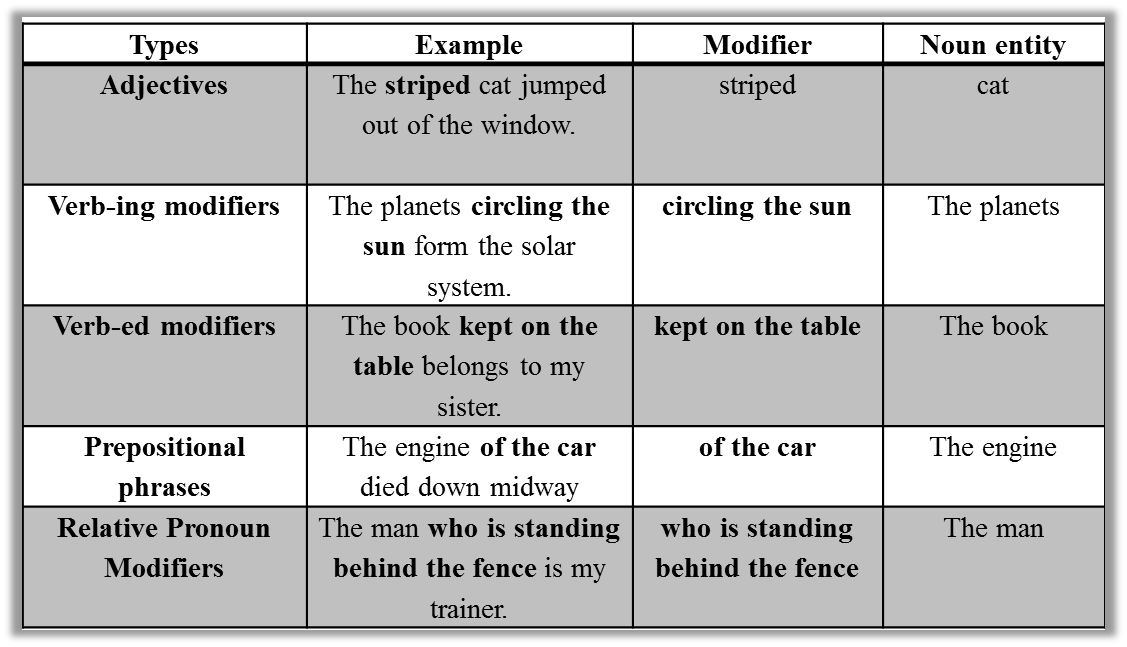
A Primer on Noun phrases and Noun modifiers Verbal Guides and Resources
verb(-ing) + noun: breakfast: We always eat breakfast at 8am. washing machine: Put the clothes in the red washing machine. swimming pool: What a beautiful swimming pool! noun + verb(-ing) sunrise: I like to get up at sunrise. haircut: You need a haircut. train-spotting: His hobby is train-spotting. verb + preposition: check-out: Please remember.

Compound nouns are two words joined together. verb(ing)+noun, noun+verb
Grammar explanation A verb can be followed by another verb. The second one usually needs to change into the - ing form or the to + infinitive form. Which form you need depends on what the first verb is. Verbs followed by the - ing form When enjoy, admit and mind are followed by another verb, it must be in the - ing form. I enjoy travelling.

220+ Useful Noun Noun Collocations from AZ • 7ESL Learn english
5 Answers Sorted by: 6 "developing" is not a noun. It's the form of a verb called the gerund, and it has a dual nature, -one of a verb and one of a substantive. Its verbal nature is shown by a) its ability to take a direct and an indirect object.